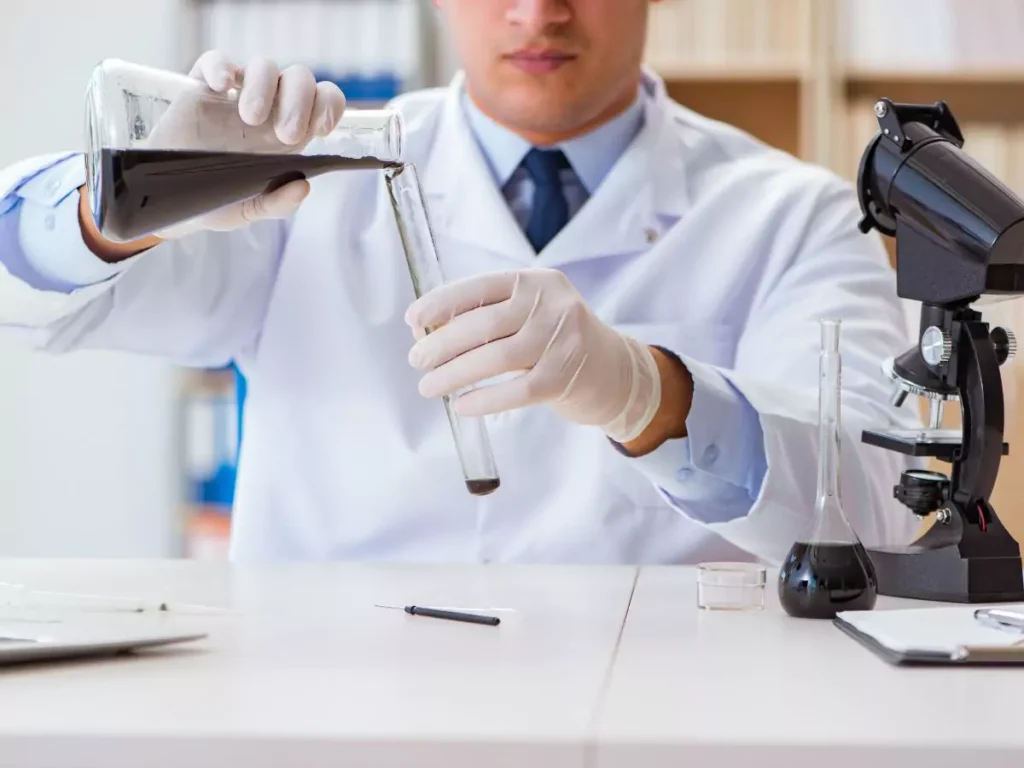
GATE Chemical Engineering Syllabus 2023

Kritika Yadav

GATE Chemical Engineering Syllabus 2023 has been Released. GATE 2023 is a national level exam organized by IIT Bombay (IITB).
GATE Chemical Engineering Syllabus 2023 includes Engineering mathematics, Process Calculations, Heat Transfer, Mass Transfer, Fluid Mechanics, Chemical Reaction, Instrumentation and Process Control, Plant Design and Economics, and Chemical Technology.
The Engineering Graduation Skill Test (GATE 2023) is organized for admission to PG courses in the field of engineering and technology, specifically ME / M.Tech.The Exam will be held in February 2023.
Listed below is the full GATE Chemical Engineering Syllabus 2023:
GATE Chemical Engineering Syllabus 2023
Engineering Mathematics
Linear Algebra
Matrix algebra, Systems of linear equations, Eigen values and eigenvectors.
Calculus
Functions of single variable, Limit, continuity and differentiability, Mean value theorems, Evaluation of definite and improper integrals, Partial derivatives, Total derivative, Maxima and minima, Gradient, Divergence and Curl, Vector dentities, Directional derivatives, Line, Surface and Volume integrals, Stokes, Gauss and Green’s theorems.
Differential equations
First order equations (linear and nonlinear), Higher order linear differential equations with constant coefficients, Cauchy’s and Euler’s equations, Initial and boundary value problems, Laplace transforms, Solutions of one dimensional heat and wave equations and Laplace equation.
Complex variables
Analytic functions, Cauchy’s integral theorem, Taylor and Laurent series, Residue theorem.
Probability and Statistics
Definitions of probability and sampling theorems, Conditional probability, Mean, median, mode and standard deviation, Random variables, Poisson, Normal and Binomial distributions.
Numerical Methods
Numerical solutions of linear and non-linear algebraic equations Integration by trapezoidal and Simpson’s rule, single and multi-step methods for differential equations.
Chemical Engineering
Process Calculations and Thermodynamics
Laws of conservation of mass and energy; use of tie components; recycle, bypass and purge calculations; degree of freedom analysis. First and Second laws of thermodynamics. First law application to close and open systems. Second law and Entropy Thermodynamic properties of pure substances: equation of state and departure function, properties of mixtures: partial molar properties, fugacity, excess properties and activity coefficients; phase equilibria: predicting VLE of systems; chemical reaction equilibria.
Fluid Mechanics and Mechanical Operations
Fluid statics, Newtonian and non-Newtonian fluids, Bernoulli equation, Macroscopic friction factors, energy balance, dimensional analysis, shell balances, flow through pipeline systems, flow meters, pumps and compressors, packed and fluidized beds, elementary boundary layer theory, size reduction and size separation; free and hindered settling; centrifuge and cyclones; thickening and classification, filtration, mixing and agitation; conveying of solids.
Heat Transfer
Conduction, convection and radiation, heat transfer coefficients, steady and unsteady heat conduction, boiling, condensation and evaporation; types of heat exchangers and evaporators and their design.
Mass Transfer
Fick’s laws, molecular diffusion in fluids, mass transfer coefficients, film, penetration and surface renewal theories; momentum, heat and mass transfer analogies; stagewise and continuous contacting and stage efficiencies; HTU & NTU concepts design and operation of equipment for distillation, absorption, leaching, liquid-liquid extraction, drying, humidification, dehumidification and adsorption.
Chemical Reaction Engineering
Theories of reaction rates; kinetics of homogeneous reactions, interpretation of kinetic data, single and multiple reactions in ideal reactors, non-ideal reactors; residence time distribution, single parameter model; non-isothermal reactors; kinetics of heterogeneous catalytic reactions; diffusion effects in catalysis.
Instrumentation and Process Control
Measurement of process variables; sensors, transducers and their dynamics, transfer functions and dynamic responses of simple systems, process reaction curve, controller modes (P, PI, and PID); control valves; analysis of closed loop systems including stability, frequency response and controller tuning, cascade, feed forward control.
Plant Design and Economics
Process design and sizing of chemical engineering equipment such as compressors, heat exchangers, multistage contactors; principles of process economics and cost estimation including total annualized cost, cost indexes, rate of return, payback period, discounted cash flow, optimization in design.
Chemical Technology
Inorganic chemical industries; sulfuric acid, NaOH, fertilizers (Ammonia, Urea, SSP and TSP); natural products industries (Pulp and Paper, Sugar, Oil, and Fats); petroleum refining and petrochemicals; polymerization industries; polyethylene, polypropylene, PVC and polyester synthetic fibers.
GATE Chemical Engineering Sectional Weightage
| GATE Chemical Engineering Sectional Weightage | |
| Engineering Mathematics | 13% |
| General Aptitude | 15% |
| Remaining Topics of CH | 72% |
GATE Chemical Engineering 2023- Books for preparation
| S.no. | Name of the subject | Name of the book | Name of the author |
| 1 | Engineering Mathematics | Engineering Mathematics | B.S. Grewal |
| 2 | Fluid Mechanics | Introduction To Fluid Mechanics (English) 7th Edition | Yunus A. Cengel, John M. Cimbala |
| 3 | Heat Transfer | Heat Transfer | Binay.K.Dutta |
| 4 | Mass Transfer | Mass Transport Phenomena | Christie J. Geankoplis |
| 5 | Process Dynamics and Control | Process Systems Analysis and Control | Donald R. Coughanowr & Steven E. LeBlanc |
| 6 | Dryden’s Outlines of Chemical Technology | Chemical Technology | Gopala Rao M. and Marshall |
| 7 | All in One | Chemical Engineering Solved Papers GATE | Nikhil Kr. Gupta |




